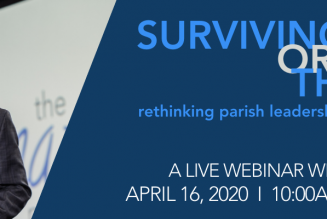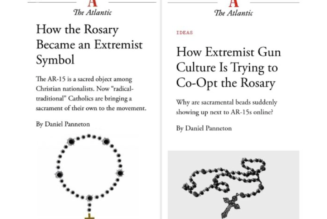Are you looking for peace?
What if instead of success and excitement, happiness meant something more like rest, fulfillment, peace? Interestingly, many ancient philosophers and theologians thought about happiness precisely in terms of peace and rest.
This is an intriguing idea because we might be tempted to think about happiness in terms of frenzied activity and experience. Happiness is living to the full. It must involve skydiving, exotic travel, gourmet food, and fancy cars. Happiness consists in doing things that are open only to a tiny fraction of the world.
But Augustine, in the City of God, argues that peace is the ultimate aim of human life. “There is no man who does not wish for peace” (19.12). Augustine suggests that peace motivates even those who go to war, aiming for victory, and those who seek to dominate others, even if peace is merely the imposition of their will. Peace is sought by all things, insofar as everything aims for some end state or fulfillment, consciously or unconsciously, even non-sentient beings.
Inner Peace: The Foundation for Outer Peace
What is this kind of peace that Augustine discusses? Thomas Aquinas takes up the question and provides some helpful distinctions (see, for example, his comments in ST II–II, q. 29, a. 1), especially between concord and peace.
Concord is the agreement of hearts (from the Latin cor, heart) between two or more people. But such agreement can be well ordered or badly ordered. So, for example, two thieves might agree to robbing a bank. They might plan the heist in concord, but it is not a true peace since their aim is badly ordered.
On the other hand, a mother and father who play together with their children can be in concord if they both seek the good of their children. There is well-ordered concord, and peace, when both agree on the ends and how to achieve those ends.
But there cannot social (or outer) peace without personal (or inner) peace. And this is where things become a little more interesting. If we want peace within our relationships, we first need to have peace within ourselves. How do we do that?
Condition 1: The Coordination of Desires
First, in order to be at peace, our desires need to be in agreement.
Thomas Aquinas distinguishes here between the sense appetite and the rational appetite. The sense appetite seeks after sensible goods known to our five senses (such as food, drink, and rest). The rational appetite seeks after intelligible goods known to our intellect (such as justice, communion, and truth).
When we desire one thing on the sensible level, and a conflicting thing on the intelligible level, we experience inner conflict and turmoil. So, “part” of me might want to study for an upcoming exam. But another “part” of me might want to stream a new show. There’s a conflict between higher and lower powers.
In other cases, there might be conflict not between the sensible and the rational desires but between two sensible goods or two intelligible goods. Imagine looking at a restaurant menu: I always want to buy the salmon and the steak and the tacos. Or for dessert I want to try the apply pie and the chocolate cake and the ice cream. I’m not at peace until I let go of all but one option and choose it.
So, first, we need to set our desires in order. If we want to find peace, we need to coordinate our higher and lower desires so that they are pulling in the same direction. And we need our lower and higher desires in themselves to be at peace so that they are not pulling in opposite directions. Doing so often requires reflection on what we truly desire in order to let go of the less important.
Condition 2: The Attainment of Desires
Second, in order to be at peace, we need to get what we want.
This might sound counterintuitive at first. Isn’t a major point of growing up learning that we do not always get what we want?
I think there are two responses to the question of unfulfilled desires of genuine goods. On the one hand, we can learn to want less (the minimalist approach). If you don’t want anything more than what you have now, you can be at peace. The formula for happiness here is bing content with what you have. There is obviously some truth to this as research on gratitude and contentment shows.
But what if you do want more than you have (the maximalist approach)? And what if these are good and legitimate desires? For a more just world, for a greater presence of love and communion? In fact, what if you want the infinite versions of these goods: perfect love, justice, beauty, rest, and communion?
We somehow need to balance the minimalist and maximalist approaches.
Getting through life means we will not always get what we want. And learning contentment with what we have is essential. But at the same time, if we want peace along with mental balance, we cannot tamp down that inner fire in our heart for more. We need to live with that desire. Persons of faith look toward a fulfillment of that desire through communion with God—imperfectly in this life and perfectly in the next life. But I think that persons with no faith can also feel that desire and let it urge them toward a more just and perfect world.
Second, then, we need to move toward what we desire. And here there is a paradox. We can practice gratitude for what we do have, which offers a kind of preliminary peace. But if peace is the attainment of our desire, and our desire is for the infinite, we will never be—and cannot be—perfectly at peace in this life.
Peace is Ever Far Away—And Always Near
Making peace with that reality of restlessness, paradoxically, is I think a path to peace. Because it means that life here does not have to be perfect. At least in this sense, to be at peace in this life, we need to stop searching for perfect peace.
And yet, that longing in your heart “for more” is real. Noticing that desire—and allowing it to move us toward a more just, more beautiful, and more joyful world—can open a deeper peace that rests not on perfect attainment of such peace but on a living hope that reaches ever forward in life and love.
Peace is thus both within our reach and yet always outside it. It is within our reach insofar as we can set our desires in order, aiming for a well-lived life. And it is ever beyond us insofar as perfect peace will always elude us in this world.
This is not bad news, but good news. Because it frees us from pouring ourselves into broken wells: people, work, and diversion that does not and cannot satisfy us.
Knowing that peace in this life is provisional allows the world to be imperfect and broken. But in noticing that desire, we find the energy to do what we can to make this world a more whole and humane and holy place.
Where do you find peace? I’d love to hear your thoughts.








